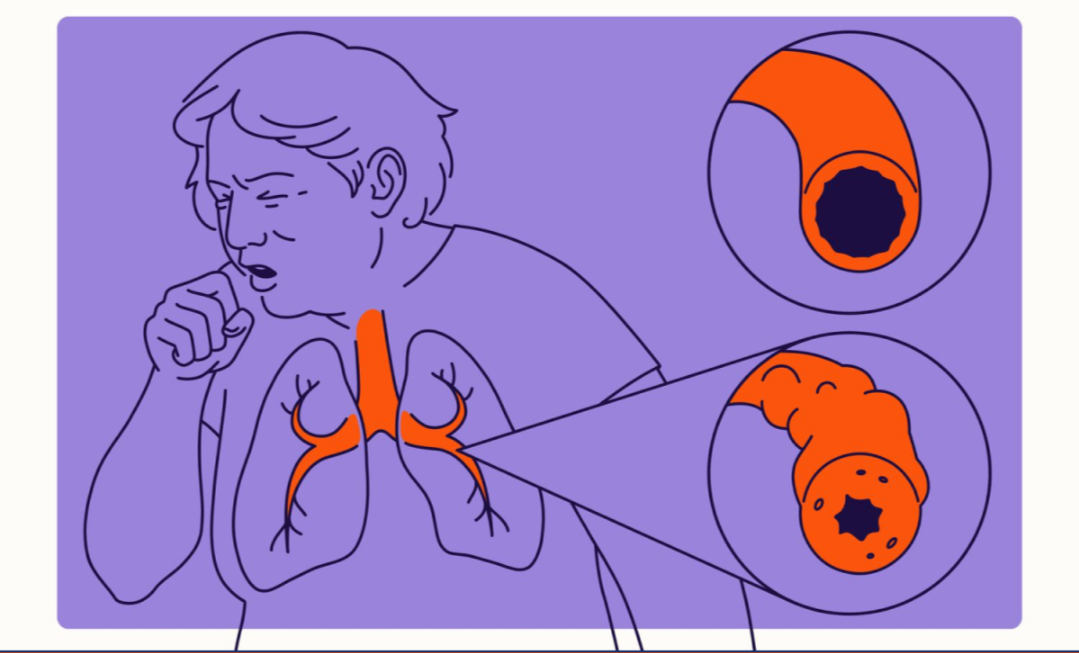Could Your Cough Be More Than Just a Cold? Learn the Early Signs of Lung Disease
That nagging cough that just won’t go away might seem like a harmless leftover from a cold—but what if it’s signaling something more serious? Understanding the early warning signs of lung disease could make all the difference. Don’t ignore what your body is trying to tell you.

What are the common symptoms of early-stage lung disease?
Early-stage lung diseases, such as Chronic Obstructive Pulmonary Disease (COPD), often present with subtle symptoms that can be easily mistaken for a common cold or mild respiratory infection. Some of the most common symptoms include:
-
Persistent cough
-
Shortness of breath, especially during physical activities
-
Wheezing or chest tightness
-
Increased mucus production
-
Recurring respiratory infections
It’s important to note that these symptoms may develop gradually over time, making them easy to overlook or dismiss as normal aging or the effects of lifestyle factors.
How can you tell if your cough is more than just a cold?
While colds typically resolve within a week or two, a cough associated with lung disease tends to persist for longer periods. Here are some key differences to look out for:
-
Duration: A cold-related cough usually improves within 2-3 weeks, while a chronic cough lasts for 8 weeks or more.
-
Mucus production: Increased mucus production that persists beyond a typical cold duration may indicate lung disease.
-
Accompanying symptoms: Fever and body aches are common with colds but less so with chronic lung conditions.
-
Time of day: Coughs related to lung disease may worsen in the morning or at night.
If your cough persists beyond the typical duration of a cold or is accompanied by other concerning symptoms, it’s crucial to consult a healthcare professional for proper evaluation.
Why is persistent coughing a red flag for lung health?
Persistent coughing is one of the most common and early signs of lung disease. It serves as the body’s natural response to clear airways of irritants or excess mucus. In the context of lung disease, this cough may be:
-
Productive (with mucus) or dry
-
Worse in the morning or at night
-
Triggered by specific activities or environmental factors
-
Accompanied by wheezing or chest tightness
A chronic cough can be indicative of various lung conditions, including COPD, asthma, lung cancer, or interstitial lung disease. Early detection and treatment of these conditions can significantly improve outcomes and quality of life.
What other subtle signs might indicate something more serious than a cold?
Beyond persistent coughing, there are other subtle signs that may point to underlying lung disease:
-
Shortness of breath: Difficulty breathing, especially during routine activities, can be a sign of reduced lung function.
-
Chest discomfort: Persistent chest pain or tightness, particularly during breathing, warrants medical attention.
-
Changes in mucus: Increased mucus production or changes in color (yellow, green, or bloody) can indicate infection or inflammation.
-
Recurrent respiratory infections: Frequent bouts of bronchitis or pneumonia may suggest compromised lung health.
-
Unexplained weight loss or fatigue: These systemic symptoms can sometimes accompany serious lung conditions.
How can you differentiate between normal aging and early signs of lung disease?
As we age, some decline in lung function is normal. However, certain signs may indicate a more serious underlying condition:
-
Breathlessness: While some reduction in exercise capacity is expected with age, significant breathlessness during routine activities is not normal.
-
Chronic cough: A persistent cough is not a normal part of aging and should be evaluated.
-
Wheezing: New-onset wheezing in older adults can be a sign of lung disease.
-
Sleep disturbances: Difficulty sleeping due to breathing issues or coughing may indicate a lung problem.
-
Decreased ability to fight infections: Frequent or prolonged respiratory infections may suggest compromised lung health.
It’s important to discuss any concerning symptoms with a healthcare provider, even if they seem mild or age-related.
What steps should you take if you suspect early-stage lung disease?
If you’re experiencing persistent respiratory symptoms or suspect you may have early-stage lung disease, consider the following steps:
-
Consult a healthcare provider: Schedule an appointment with your primary care physician for an initial evaluation.
-
Keep a symptom diary: Record the frequency, duration, and severity of your symptoms to share with your doctor.
-
Undergo appropriate tests: Your doctor may recommend pulmonary function tests, chest X-rays, or other diagnostic procedures.
-
Consider lifestyle changes: Quit smoking if you smoke, and avoid exposure to secondhand smoke and other air pollutants.
-
Follow your treatment plan: If diagnosed with a lung condition, adhere to prescribed medications and follow-up appointments.
-
Join support groups: Connect with others who have similar conditions for advice and emotional support.
Early detection and prompt treatment of lung diseases can significantly improve outcomes and quality of life. Don’t hesitate to seek medical attention if you’re concerned about your lung health.
This article is for informational purposes only and should not be considered medical advice. Please consult a qualified healthcare professional for personalized guidance and treatment.




